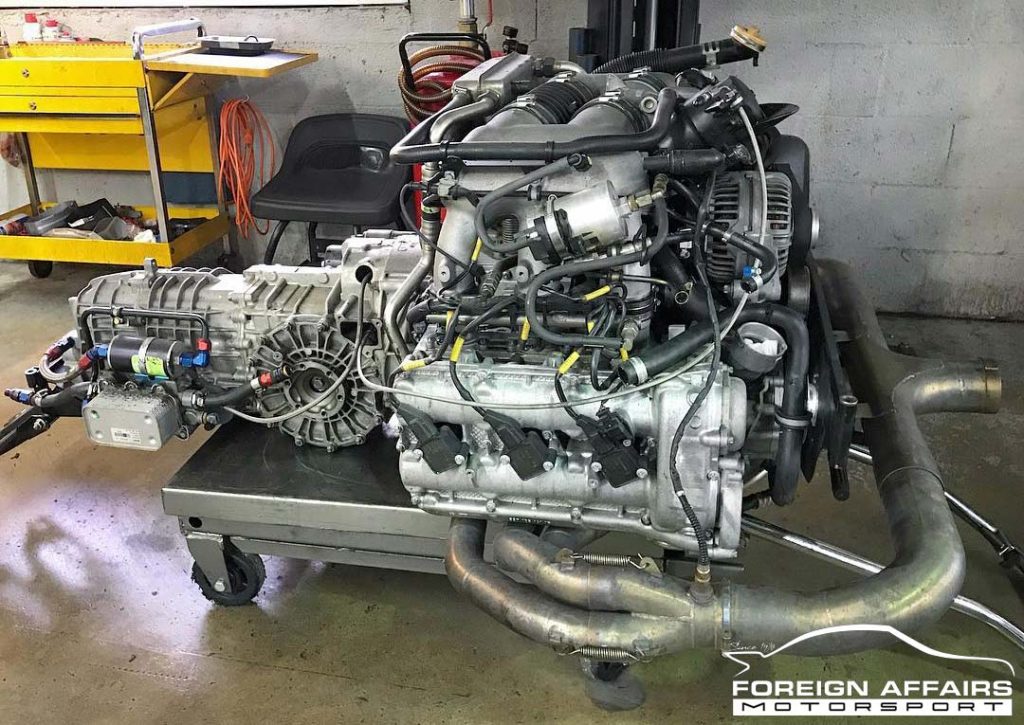Porsche Repair | How To Tell It’s Time For An Engine Rebuild

Does your Porsche often feel like it has lost some of its power over the years? Has it started making noises it never used to, or are you leaving behind a cloud of smoke not made by your tires? Each generation and model of Porsche has its own character and problems. Some engines are known for being bulletproof, and others needing a lot more love and maintenance. All Porsche age differently, and they begin to require different forms of maintenance outside of the regular service. An engine rebuild is one of these forms of maintenance and Porsche repair, and is fairly common procedure amongst classic car enthusiasts, though it’s not always easy to tell when a rebuild is necessary. Should your car experience any of the following, it may be time to consider a rebuild.
Low Performance And Increased Emissions
Any car that has a significant amount of mileage put on it will, begin to experience a drop-in performance. The cause of this varies from car to car, and each owners driving style. A common reason for the decline in engine performance is carbon build up, which can block valves, which can lead to lack of compression, or allow less fuel and air to enter the cylinder and decrease both power and efficiency. This also leads to fuel not being burnt properly, and an increase in emissions.
Increased emissions can also be caused by oil being burnt. The most common reasons for oil being burnt is where oil begins to leak passed valve seals and piston rings. Worn piston rings also manifest in poorer performance as the combustion gases are allowed to leak too, leading to the engine making less power. If on start up when the engine is cold, your car is producing blue smoke, this is a sign of oil being burnt.
This loss in compression due to poor piston rings can also lead to a misfire. Misfires occur when the vehicles spark plug ignites when the piston is in the wrong position or does not fire at all. Not only is it bad for performance but can increase the rate at which carbon builds up, decrease economy and increase your vehicle’s emissions.
Knocking
Knocking and engine performance tend to go hand in hand. As the car ages, the engine experiences cycles of heating and cooling which slowly begin to increase the tolerances of the engine. This along with general wear impact your performance. As parts wear and tolerances increase, they begin to fit less securely in their position, and in the case of your pistons and rods, they can begin to shake from side to side in the cylinder, instead of moving up and down.
A sound knocking is normal in race cars, or highly modified engines, when the engine is still cold. In these cars the standard internals are replaced with internals made of forged steel. Forged steel can handle higher levels of compression without warping but expands in size with heat. The internals are actually smaller than required and expand to the required dimensions when the engine is up to temperature.
If your vehicle does not have forged components, and you begin to hear knocking coming from the engine, especially at high revs, an engine rebuild may be required before it causes a larger problem.
Dirty Oil And Oil Sludge
If during a regular oil change you notice what looks like glitter in your oil, or your oil pan is full of sludge, both of these point to an issue in your engine. The glitter in the oil is metal shavings and is a tell-tale sign that a component in the engine is rubbing against something and is filing away pieces of metal. Sludge is wasted oil and coolant that cannot be used by the engine. If there is sludge present, it can cause the engine to sound tired or to underperformed and is an indicator that a rebuild is necessary.
Model Specific Rebuilds
The 996 and 986 generation of the 911 has an engine design fault that can only be addressed by a rebuild. The vehicles IMS, or Intermediate Shaft Bearing, is prone to seizing. This is because when it was built, the IMS was lubricated with internal grease, instead of being designed to be lubricated by pressurized oil. As the vehicles age, the internal grease begins to dry up and can cause the damage to the intermediate shaft, which will require the engine to then be rebuilt.
Whilst all the above are good indicators that a rebuild is necessary, the cause of these issues can often be remedied without the need of a full rebuild. As every model of Porsche is different, some of these signs may lead to a far simpler repair. Should your Porsche Experience any of the aforementioned issues, Foreign Affairs Motorsport’s expert team will be more than happy to diagnose your vehicle and recommend a course of action which best suits your vehicle.



